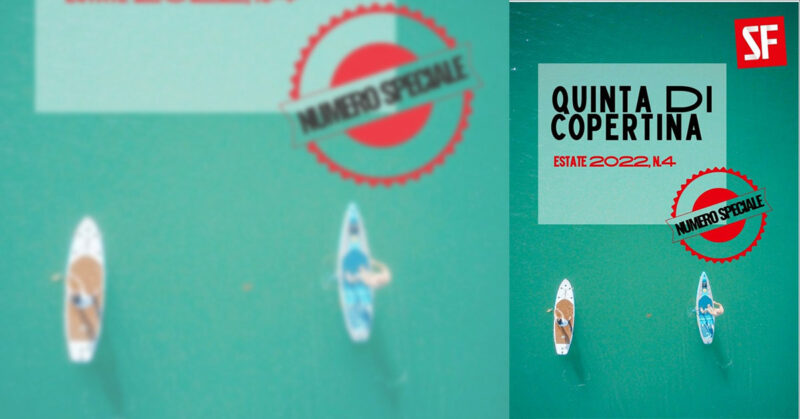Sul Quinta di Copertina speciale estivo, l'”inserto libri” di Senza Filtro, c’è come al solito un mio breve pezzo che, spoilero, ti stupirà per una (non troppo, da parte mia) inusuale delicatezza.
Il collegamento questa volta è tra “La via del bosco”, di Long Litt Woon, e “Il mio anno di riposo e oblio”, di Ottessa Moshfegh.
Il primo racconta la scoperta della micologia come cura per il dolore lasciato dalla morte della persona più importante. Il secondo è un cinico “esperimento” di isolamento e anestesia tentato da una ragazza senza nome.
Sono entrambi casi di scrittura al femminile – elemento nel quale spesso non sono a mio agio – ma che in un modo o nell’altro mi hanno “tirato” ad esser letti fino in fondo.
(La rivista online si trova qui, la richiesta di mail non ha secondi fini).
PS Ne metto qui una traduzione (veloce, non pulita) in inglese
A means to an end
Two women.
The first of them slowly walks through Norwegian woods, seemingly aimless, breathing the resin filled mist while swinging a wicker basket sometimes full of mushrooms. The second voluntarily seals herself in her New York flat, gobbling sleeping pills and meds, a strict pizza diet.
Unlike the second, the first woman didn’t gave herself time constraints, and her meandering goes on. For the second, the deadline is given one year later.
The first one looks at the world with that willing-to-be-surprised simplicity typical of a certain Eastern world. The second is a steamroller of iper-rational cynism, unable to find a reason of tenderness non only in herself, but also in others. And speaking about others: the first one let new people compose a kind and careful galaxy, while the second one never misses an opportunity to frustrate her only friend’s outbursts of affection
The first is a mature woman, she was born in Malaysia but moved to Norway while still a student. The second one, twenty-six, is the most WASP girl recent literature has been able to conjure.
The first has the name and the story of the author. Of the second, we’ll never know the name.
So, Davide, you’ll say, what do these two people have in common, and these two books?
Simply everything, and that is the fact that both of them have something to heal, that literary abyss that looks at you in turn, a huge void left by her husband who died suddenly (the first woman) or by a family and a formation and a society that have lost their values. And each of them has chosen (or had the good fortune to have stumbled upon) the healing method that their body and mind have deemed as the most congenial. Both followed it all the way, both canceled themselves out, both came out healed.
Can you syndicate one of the two choices? In my opinion, no, because everyone heals the best they can. The important thing is trying.

